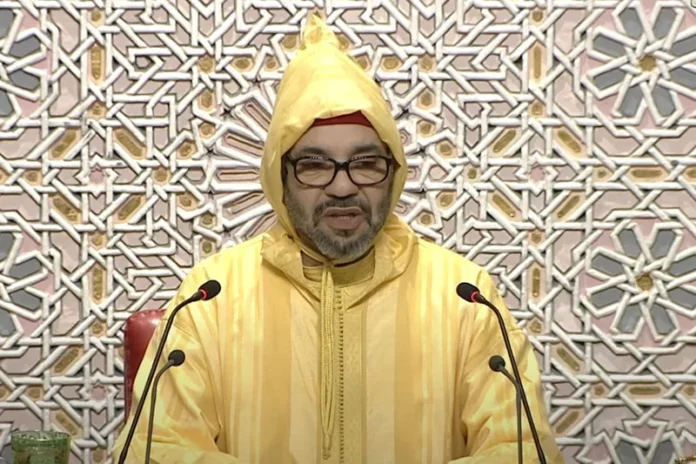Tonight, King Mohammed VI will address the Parliament on the occasion of the opening of the first session of the fifth legislative year of the eleventh legislature. While this event generally carries a routine institutional character, this year’s speech is of exceptional significance amid the protests of the “Generation Z 212” movement, which began on September 27, demanding the resignation of the government, dissolution of Parliament, and accountability for officials responsible for corruption and failures in public services.
“The royal institution is the last refuge, and we await a clear message that restores trust in the country,” stated the youth in an official message published on digital platforms.
Generation Z: A Bold Digital Voice Without Intermediaries
What distinguishes the “Generation Z 212” protests is the complete absence of traditional intermediaries. Young people organize entirely through digital platforms such as TikTok and Discord, without political parties or unions. Their demands are clear and fundamental:
-
Dismissal of the government led by Aziz Akhannouch.
-
Dissolution of the current Parliament.
-
Holding officials accountable for corruption and failures in education and health sectors.
These demands make the royal speech a pivotal moment, seen as an indicator of the state’s ability to address an unprecedented crisis of trust.
The King’s Speech: A Tool for Guidance and Accountability
Analysis of 55 royal speeches since the 2011 Constitution shows that approximately 70% were directed at political actors: government, parties, majority and opposition.
-
Royal speeches combine evaluation, critique, and guidance, with warnings such as “do not instrumentalize the country to settle partisan scores” (Throne Speech 2016) or questioning “the effectiveness of institutions if the people are in one valley and the officials in another” (Throne Speech 2017).
-
Royal messages are concentrated on key national occasions: Parliament opening and Throne Speech (34% each), Revolution of the King and the People (18%), and the Green March (13%).
Hafid Al-Younsi, professor of political science: “Royal speeches are binding on all institutions, ensure the continuity of the state, and protect rights and freedoms, and criticism is an integral part of the guidance strategy.”
Historical Analysis: Critique and Guidance
-
Royal messages are dominated by practical directives (52%), followed by implicit criticism (18%) and direct criticism (17%).
-
General political action was the main target of criticism (38%), followed by party activity (31%) and political responsibility (22%).
-
This shows that royal speeches do not only provide positive guidance but also adopt a strict strategy of accountability and correction.
Abderrahim Allam, political science researcher: “The Parliament opening speech contains clear directives for the government, even though the Parliament remains an independent institution, covering key sectors such as water, governance, and investment.”
Risks and Future Scenarios
-
Street escalation: any ambiguous or purely symbolic speech could intensify protests and spread them across major cities.
-
Challenges for the government: ignoring radical demands will increase the loss of trust in the political class and place it in direct confrontation with youth.
-
Opportunity for reform: any clear indication from the King regarding accountability or commitment to critical political reforms could ease tensions and restore balance between the state and the street.
Abderrahim Allam: “The Parliament opening speech is not devoid of clear directives and serves as a means to ensure that governmental institutions operate in the public interest.”
The Royal Speech Amid Generation Z Protests
The current protests, despite their social nature, reflect a loss of trust in traditional institutions, placing the King before a dual test:
-
For protesting youth: Will their radical demands find genuine resonance?
-
For the royal institution: Can it maintain its authority while responding to critical political demands?
The speech may include symbolic indications for institutional reform or the Advisory Council for Youth and Civil Society, reflecting the King’s balance between listening to the street and maintaining state stability.
Morocco at a Critical Crossroads
Morocco faces a pivotal moment today:
-
The royal speech could be an opportunity to restore balance between the state and youth, or
-
It could signal escalating popular discontent and profound changes in the political and social landscape.
The world is watching how the Kingdom will handle this challenge, while the government attempts to address the scale of popular demands and Generation Z insists on deep and radical reforms.
Al-Younsi: “Seriousness means that the elites are entrusted with the country, and the public interest must take precedence over individual, partisan, or sectoral interests to strengthen political cohesion and national unity in the face of various risks.”


